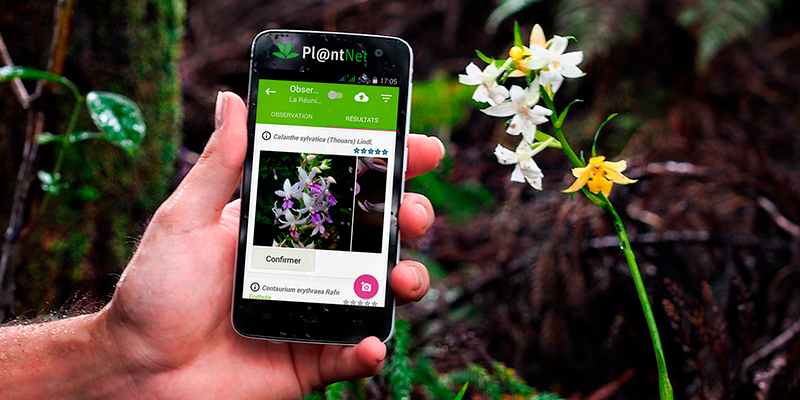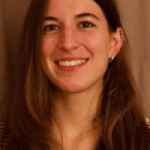New research proves that Cos4Cloud technology boosts citizen science data quantity and quality
According to a new research study published in the academic journal Sustainability, the technology developed by the Horizon2020 Cos4Cloud project can substantially support networks of citizen observatories, that is, citizen science platforms that gather biodiversity and environmental observations (photos), to increase their data quality and quantity.
"Creating networks of citizen observatories, such as those facilitated by Cos4Cloud, contribute to addressing common citizen science challenges", states Sasha Woods, first author of the publication, researcher for impact and innovation at EarthWatch and lead of the dissemination and sustainability strategy at Cos4Cloud. In the Cos4Cloud project, nine of the biggest citizen science observatories at a European level are part of the network.
"Creating networks of citizen observatories, such as those facilitated by Cos4Cloud, contribute to addressing common citizen science challenges", states Sasha Woods, first author of the publication, researcher for impact and innovation at EarthWatch and lead of the dissemination and sustainability strategy at Cos4Cloud. In the Cos4Cloud project, nine of the biggest citizen science observatories at a European level are part of the network.
In particular, Cos4Cloud offers 12 services that bring solutions to some of citizen observatories' most critical technological challenges, such as artificial intelligence to recognise species; a repository of tools to view and analyse citizen science data; acknowledging systems, for example, letting citizen scientists know if their observations have been used in a scientific paper to keep them engage; creating integrative citizen science apps that include several projects, etc. Cos4Cloud is also working to improve the interoperability among citizen observatories and services. The aim is to allow data exchange among different platforms and have more standardised and useful data sets to monitor the Sustainability Development Goals (SDGs).
“All the services we are developing will be openly available in the European Open Science Cloud (EOSC) so that any citizen observatory can easily install the ones it needs”, says Jaume Piera, Cos4Cloud’s coordinator, researcher at ICM-CSIC and associate researcher at CREAF, and one of the co-authors.

CREAF, part of the Cos4Cloud team, is leading the interoperability activities to connect the twelve Cos4Cloud services and resources with the EOSC ecosystem and enable the integration of services in the citizen observatories. "Interoperability is probably the only way that a European interdisciplinary research infrastructure such as the EOSC can function", says Joan Masó, researcher at CREAF, part of the GRUMETS group at the UAB and coordinator of interoperability at Cos4Cloud.
Improving data quality
The academic article takes two of the Cos4Cloud services as case studies: Pl@ntNet-API and Cos4Bio, both of which were recently added to the EOSC. On the one hand, Pl@ntnet-API enables the Pl@ntNet visual engine to be integrated into other citizen observatories. Once incorporated into the app, it will help their users recognise plant species, improving quality control of their identifications. So far, more than 5000 end users have created an account to use the Pl@ntNet identification API.

Currently, Pl@ntNet data contributes to monitoring progress towards several SDG indicators, such as SDG 15 "Life on Land", supporting the identification of new species and new approaches for biodiversity conservation and restoration, among others. "As more people integrate Pl@ntNet-API into their apps, researchers will have more quality data to feed the SDGs monitoring”, points out Alexis Joly, INRIA and developers of four of the services in Cos4Cloud.
On the other hand, Cos4Bio is an online portal where experts can validate and download a huge amount of biodiversity data from multiple citizen observatories regardless of the citizen science observatory or country they come from. “This breaks down the barriers of validity and accessibility that prevent citizen science data from feeding into environmental policy”, highlights Sasha Woods.
Cos4Cloud has also implemented a co-design methodology to develop the services. This methodology aims to create services that genuinely respond to the challenges faced by the citizen science community: project coordinators, app developers, naturalists, etc. To this end, Science for Change has designed a series of creative and dynamic activities that gather the opinions of this community on the services. All their contributions have been taken into account from the beginning.
Citizen science as a learning experience
Additionally, Cos4Cloud is working on integrating citizen science into Greek school curricula and creating networks of teachers to promote such integrations. Specifically, the project has designed and carried out a six-months online training course for school teachers and educational stakeholders on how to incorporate citizen science in their teaching practice ‘Citizen Science and Environmental Education for Sustainability’, organised by NKUA. Furthermore, the project has recently coordinated the implementation and evaluation of five case studies within Greek schools during the spring term of 2020–2021.
Cos4Cloud has designed and carried out a six-months online training course for school teachers and educational stakeholders on how to incorporate citizen science in their teaching practice ‘Citizen Science and Environmental Education for Sustainability’
“We have very positive feedback from all our actions so far that an appropriately designed pedagogical use of the project’s technologies can enrich current school practices towards responsible and active citizenship for attaining sustainability”, states Maria Daskolia, tenured associate professor at NKUA and director of the Environmental Education Lab at the same institution, who leads the integration of citizen science in school in Cos4Cloud.







